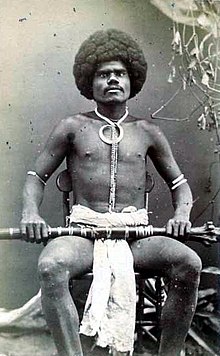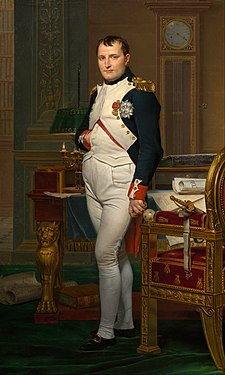
 |
| Royal Dutch Airlines Koninklijke Luchtvaart Maatschappij |
Today's Highlight in History 1919 – KLM, the flag carrier of the Netherlands, is founded. It is the oldest airline still operating under its original name.
Koninklijke Luchtvaart Maatschappij N.V. (Royal Dutch Airlines), best known by its initials KLM, is the flag carrier airline of the Netherlands. KLM's headquarters is in Amstelveen near its hub at Amsterdam Airport Schiphol. KLM operates scheduled passenger and cargo services to more than 90 destinations worldwide. It is the oldest airline in the world still operating under its original name. As of 2013 it had 32,505 employees.
In 1919, a young aviator lieutenant named Albert Plesman sponsored the ELTA aviation exhibition in Amsterdam. This aviation exhibition was a great success, and, after closure, several Dutch commercial interests had the intention to establish a Dutch airline. Plesman was nominated to head this new airline.In September 1919, Queen Wilhelmina awarded the yet to be founded KLM its "Royal" ("Koninklijke") predicate. On October 7, 1919, KLM (which is the abbreviation for Koninklijke Luchtvaart Maatschappij which literally means Royal Airlines in English) was founded by Albert Plesman in The Hague as one of the world's first commercial airline companies.
The first KLM flight took place on 17 May 1920. KLM's first pilot, Jerry Shaw, flew from Croydon Airport, London to Amsterdam. The flight was flown using a leased Aircraft Transport and Travel De Haviland DH-16, registration G-EALU, and was carrying two British journalists and a number of newspapers. In 1920, KLM carried 440 passengers and 22 tons of freight. In April 1921, after a winter hiatus, KLM resumed its services using its own pilots and aircraft: Fokker F.II and Fokker F.III. In 1921, KLM started scheduled services.
 |
| Air France-KLM |
On 30 September 2003, Air France and KLM announced and agreed to a merger plan in which Air France and KLM would become subsidiaries of a holding company called Air France-KLM.
The merger which is incorporated under French law with headquarters at Paris-Charles de Gaulle Airport stipulated that both Air France and KLM would continue to fly under their distinct brand names as subsidiaries of the group. Air France and KLM are part of the SkyTeam alliance, the second largest in the world behind only the Star Alliance.
-Wikipedia
1826 – The Granite Railway begins operations as the first chartered railway in the U.S.
1862 – Royal Columbian Hospital (RCH) opens as the first hospital in the Canadian province of British Columbia
1870 – Franco-Prussian War – Siege of Paris: Léon Gambetta flees Paris in a hot-air balloon.
1919 – KLM, the flag carrier of the Netherlands, is founded. It is the oldest airline still operating under its original name.
1933 – Air France is inaugurated, after being formed by a merger of 5 French airlines.
1944 – World War II: During an uprising at Birkenau concentration camp, Jewish prisoners burn down the crematoria.
1949 – The communist German Democratic Republic (East Germany) is formed.
1955 – American poet Allen Ginsberg performs his poem Howl for the first time at the Six Gallery in San Francisco..
1959 – U.S.S.R. probe Luna 3 transmits the first ever photographs of the far side of the Moon.
1960 – Nigeria joins the United Nations.
1963 – John F. Kennedy signs the ratification of the Partial Test Ban Treaty.
1971 – Oman joins the United Nations.
1993 – The flood of '93 ends at St. Louis, Missouri, 103 days after it began, as the Mississippi River falls below flood stage.
1996 – The Fox News Channel begins broadcasting.
1998 – Matthew Shepard, a gay student at the University of Wyoming, is found tied to a fence after being savagely beaten by two young adults in Laramie, Wyoming.
2001 – The U.S. invasion of Afghanistan begins with an air assault and covert operations on the ground.
2003 – The govenor of California, Gray Davis, is recalled in favor of Arnold Schwarzenegger.
The merger which is incorporated under French law with headquarters at Paris-Charles de Gaulle Airport stipulated that both Air France and KLM would continue to fly under their distinct brand names as subsidiaries of the group. Air France and KLM are part of the SkyTeam alliance, the second largest in the world behind only the Star Alliance.
-Wikipedia
World Events
1826 – The Granite Railway begins operations as the first chartered railway in the U.S.
1862 – Royal Columbian Hospital (RCH) opens as the first hospital in the Canadian province of British Columbia
1870 – Franco-Prussian War – Siege of Paris: Léon Gambetta flees Paris in a hot-air balloon.
1919 – KLM, the flag carrier of the Netherlands, is founded. It is the oldest airline still operating under its original name.
1933 – Air France is inaugurated, after being formed by a merger of 5 French airlines.
1944 – World War II: During an uprising at Birkenau concentration camp, Jewish prisoners burn down the crematoria.
1949 – The communist German Democratic Republic (East Germany) is formed.
1955 – American poet Allen Ginsberg performs his poem Howl for the first time at the Six Gallery in San Francisco..
1959 – U.S.S.R. probe Luna 3 transmits the first ever photographs of the far side of the Moon.
1960 – Nigeria joins the United Nations.
1963 – John F. Kennedy signs the ratification of the Partial Test Ban Treaty.
1971 – Oman joins the United Nations.
1993 – The flood of '93 ends at St. Louis, Missouri, 103 days after it began, as the Mississippi River falls below flood stage.
1996 – The Fox News Channel begins broadcasting.
1998 – Matthew Shepard, a gay student at the University of Wyoming, is found tied to a fence after being savagely beaten by two young adults in Laramie, Wyoming.
2001 – The U.S. invasion of Afghanistan begins with an air assault and covert operations on the ground.
2003 – The govenor of California, Gray Davis, is recalled in favor of Arnold Schwarzenegger.













